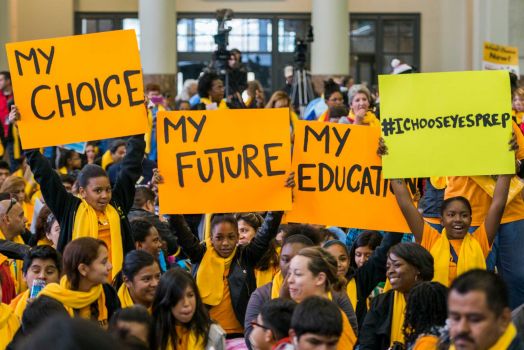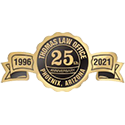 If you and the other parent share joint legal decision-making authority, you are required to consult with each other about major decisions. One such decision is which school to enroll the child in. In Arizona, there are lots of alternatives for parents of school-age children. There is the local school where the child is entitled to enroll. There are other schools in the district where the child can enroll instead, provided that there is enough space available. Often, there is a waiting list. Another option is a charter school. But that’s not all – private schools and home-schooling are also other important options to possibly consider.
If you and the other parent share joint legal decision-making authority, you are required to consult with each other about major decisions. One such decision is which school to enroll the child in. In Arizona, there are lots of alternatives for parents of school-age children. There is the local school where the child is entitled to enroll. There are other schools in the district where the child can enroll instead, provided that there is enough space available. Often, there is a waiting list. Another option is a charter school. But that’s not all – private schools and home-schooling are also other important options to possibly consider.
What happens when parents cannot agree on which school to enroll their child in? In Arizona, if the parents share joint legal decision-making authority, they must consult each other and reach an agreement before the child can be enrolled in any particular school. To do otherwise is to invite a harsh response from the family court judge.
If you and the other parent cannot agree on which school the child should attend, one option is mediation. A good mediator may be able to assist the parents in making the best decision possible. Sometimes it is difficult to determine the best option, and a good mediator should be able to offer either a neutral opinion or point you to yet another expert who can assist in this very important decision that will surely affect your child’s life.
But what happens if you and the other parent still cannot agree on which school the child should attend? If that happens, it’s important to get legal advice quickly. It’s even more important that you instruct your attorney to take legal action immediately – generally the sooner the better. The school choice dispute can be brought before the family court judge assigned to your case. The Court of Appeals has issued standards and factors the judge must follow. Some of the things the judge must consider are:
- The wishes of the child’s parents as to school placement;
- The wishes of the child as to school placement (obviously only if the child is mature enough):
- The interaction and interrelationship of the child with persons at the school who may significantly affect the child’s best interests;
- The child’s adjustment to any present school placement.
 In addition, the court can consider several other factors. The point is that your family court judge will be the final decider of where your child attends school if you and the other parent cannot reach an agreement on this important matter. Because of the way Arizona statutes and caselaw have been interpreted, the judge will not directly make the school choice decision. Instead, the judge will award “final decision-making status” to the parent the judge tends to agree with on the school choice dispute.
In addition, the court can consider several other factors. The point is that your family court judge will be the final decider of where your child attends school if you and the other parent cannot reach an agreement on this important matter. Because of the way Arizona statutes and caselaw have been interpreted, the judge will not directly make the school choice decision. Instead, the judge will award “final decision-making status” to the parent the judge tends to agree with on the school choice dispute.
It is essential that you retain an attorney with experience in handling these kinds of cases. School choice cases can be very difficult, and some judges are loathe to get involved; but they must. Having a good attorney on your side will increase the chance that your position will prevail. A good, experienced attorney will know how to most effectively present the case to the judge in a way that the judge will be more likely to rule in your favor. We have this experience. Call us today for representation!






















